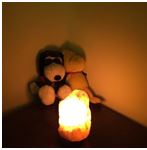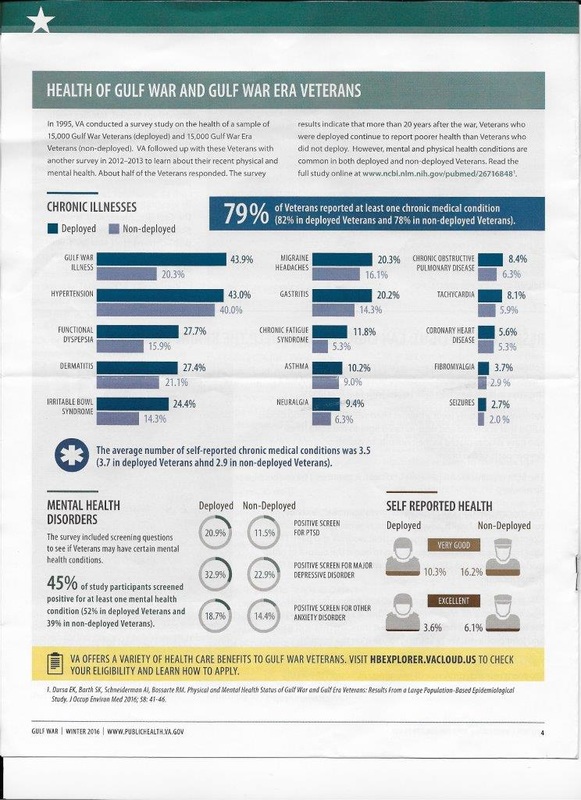|
Mayo Clinic-Approved Natural Remedies for Anxiety
Kava Kava appeared to be a promising treatment for anxiety, but reports of serious liver damage — even with short-term use — caused the Food and Drug Administration to issue warnings about the use of dietary supplements containing kava. While these initial reports of liver toxicity have been questioned, use extra caution and involve your doctor in the decision if you’re considering using products containing kava. Passion flower A few small clinical trials suggest that passion flower might help with anxiety. In many commercial products, passion flower is combined with other herbs, making it difficult to distinguish the unique qualities of each herb. Passion flower is generally considered safe when taken as directed, but some studies found it can cause drowsiness, dizziness and confusion. Valerian In some studies, people who used valerian reported less anxiety and stress. In other studies, people reported no benefit. Valerian is generally considered safe at recommended doses, but since long-term safety trials are lacking, don’t take it for more than a few weeks at a time, unless your doctor approves. It can cause some side effects such as headaches, dizziness and drowsiness. Chamomile Limited data shows that short-term use of chamomile is generally considered safe and can be effective in reducing symptoms of anxiety. But chamomile can increase the risk of bleeding when used with blood-thinning drugs. Use of chamomile can cause allergic reactions in some people who are sensitive to the family of plants that includes chamomile. Other members of this family are ragweed, marigolds, daisies and chrysanthemums. Lavender Some evidence suggests that oral lavender or aromatherapy with lavender can reduce anxiety; however, evidence is preliminary and limited. Oral lavender can cause constipation and headaches. It can also increase appetite, increase the sedative effect of other medications and supplements, and cause low blood pressure. Lemon balm Preliminary research shows lemon balm can reduce some symptoms of anxiety, such as nervousness and excitability. Lemon balm is generally well-tolerated and considered safe for short-term use, but can cause nausea and abdominal pain. Herbal supplements aren’t monitored by the FDA the same way medications are. Despite enhanced quality control regulations in place since 2010, the quality of some supplements may still be an issue. Remember, natural doesn’t always mean safe. If you’re considering taking any herbal supplement as a treatment for anxiety, talk to your health care provider first, especially if you take other medications. The interaction of some herbal supplements and certain medications can cause serious side effects. Some herbal supplements taken for anxiety can cause you to feel sleepy, so they may not be safe to take when driving or doing dangerous tasks. Your doctor can help you understand possible risks and benefits if you choose to try an herbal supplement. If your anxiety is interfering with daily activities, talk with your doctor. More-serious forms of anxiety generally need medical treatment or psychological counseling (psychotherapy) for symptoms to improve. This article is written by Brent Bauer, M.D., director of Mayo Clinic’s Complementary and Integrative Medicine Program. Find more health and medical information on mayoclinic.org.
0 Comments
"Winter is Coming" was the first episode of the HBO thrilling series Game of Thrones.
While that is an excellent show to watch, people suffering or susceptible to IBD should be concerned about winter coming for other reasons if they live in northern latitudes. With the season change comes the cold, shorter days, and cloudy skies. This means less natural Vitamin D.. There are a few reasons to be concerned about this and why someone with IBD should consider taking supplemental Vitamin D. Vitamin D is known as the sunshine vitamin. Take away the sunshine and there goes the Vitamin D because it is produced when the sun's ultra-violet rays hit the skin. Epidemiological research shows people who live in northern latitudes are more at risk of having inadequate levels of Vitamin D compared to those who live in southern latitudes. A study published in the journal Gut shows geography also affects the incidence of inflammatory bowel disease (IBD): increasing latitude of residence was linked to an elevated incidence of Crohn’s disease and ulcerative colitis in a population of American women. Another study published in the journal Gastroenterology demonstrated a connection between higher Vitamin D status and lower Crohn’s disease, suggesting greater Vitamin D intake is a means of decreasing the risk of Crohn’s disease. Emerging research is pointing to Vitamin D and its role in the inflammatory process, and as a factor in the disease activity in patients with IBD, according to Dr. Gilaad Kaplan, a gastroenterologist with a research interest in IBD and Assistant Professor at the University of Calgary. As if this is not enough of a reason to take supplemental Vitamin D during the winter months, here is another one: A high prevalence of Osteoporosis is associated with Crohn’s and Colitis. One of the risk factors for Crohn’s and Colitis patients developing Osteoporosis is inadequate levels of Vitamin D. There are two choices that I know of for adding supplemental Vitamin D. One is through purchasing capsules at the health food store. Another means is having a physician prescribe sublingual Vitamin D drops. These are typically available through prescription via compounding pharmacies. One other thing, it is outside of the scope of this posting to delve into dosage levels. Recommendations for dosage levels do vary depending on the source from what I have seen. It is best to consult with your physician especially if you are taking other prescription medications. Many, many thanks to Jackie for providing this excellent post. :-) Visit her at hyper-tidy.com. If you live with the symptoms of chronic pain, you are already well aware of exactly how disruptive and debilitating it can be. Everything from the weather outside to the foods we eat can trigger excruciating pain. Persistent, ongoing pain episodes can prevent you from enjoying your favorite activities. Even worse, your symptoms can linger for weeks, months, years, or even decades. Some forms of chronic pain - such as migraine headaches - are among the most common health conditions in the world. Unfortunately, many over-the-counter and prescription pain medications are not helpful in completely relieving chronic pain symptoms. This is leading to an epidemic in abuse of pain relief medications. Luckily, there are still ways that you can manage your chronic pain symptoms - possibly even without turning to medications. Here are some natural solutions and lifestyle changes that might provide you some much-needed light at the end of the tunnel:
These are just a few of the ways that you can begin to heal your body from chronic pain. Although some chronic pain conditions clear up on their own, others might last a lifetime. It is important to manage your symptoms and help your body heal itself, so that you can get back to a quality of life that you enjoy. Photo courtesy of Unsplash by Angie Franklin REMEDY: How I Cured the Incurable by Matthew J. MurphyI'm very excited to announce that my book "REMEDY: How I Cured the Incurable" has been published and is now available for the summer reading season.
I am excited to be able to provide this item for your health and healing. I apologize for the delays but in the end you will be receiving a better product. eBook, and Published Paperback book versions . These may be ordered through Amazon, and through traditional book stores such as Barnes & Noble & Books A Million. Barnes & Noble Link Amazon Link Support your local bookstore when possible. They are able to order my book as well. Click the screen grab below for great service from a local store near me. :-) For persistent coughs and tickly throats:
Combine the following in a pot over medium heat until simmering: 3/4 cup unfiltered honey 1/2 cup water 1 whole lemon cut in fours 1 inch ginger root diced AND 1 tablespoon chopped fresh sage Remove the mixture from heat and let steep, covered for 10 minutes. Strain the cough syrup into a sealed glass jar and refrigerate. Take as needed. Happy Holidays :-)
I had a cold this holiday. With a cough and sore throat. For those in a similar situation having a sore throat is horrible for getting to sleep. So, to help those out in similar need I am providing two remedies that I took. The first one is in this post. Add the following to a mug: 2 teaspoons crumbled dried sage leaves OR 1 tablespoon chopped fresh sage 1 teaspoon dried astragalus root Add boiling water and steep for 5 minutes For best results, drink one cup twice a day. There are two routes to take for the air that you want to breathe. One is to obtain clean air and the other is to obtain more oxygen. I will discuss one option for clean air today and will discuss how to obtain more oxygen in a future post.
HIMALAYAN CRYSTAL SALT LAMPS—The beneficial effects of salt lamps have been known for decades. Salt lamps emit negative ions, which work like natural ionizers keeping the air clean. Negative ions attach themselves to dust, pollen, mold, and odors. This is known to be very beneficial to respiratory health. Salt lamps also minimize the effect of positive ions from electronic devices. I like the lamp from Evolution Salt Co. They are hand crafted. PH. 877-868-7979 Website. www.evolutionsalt.com My Salt Lamp is shown above. The natural color of the lamp reinforces the rejuvenating and healing influence. Just ask Snoopy and Woodstock. Don’t they look content? Read the following about PTSD from the site and go to the bottom of this blog post for the link to the site and sign up for FREE. Program is FREE for the Military.
A Real Change Treating PTSD is difficult and often ineffective. As a veteran, you know the torture that you endure with compulsive thoughts, sleepless nights, disturbing dreams and inability to connect with your family upon returning home. Why PSTD is Hard to Treat Many Veterans try therapy that is focused on directing the conscious activity of the brain. Using coping skills and cognitive training, they are taught to try to change the way they think and react to their thoughts and emotions. The problem is that the effects of PTSD are not able to be controlled on a conscious level. Trauma, emotions, nightmares and the inability to connect with family are problems of the subconscious mind. Using hypnosis as therapy we can influence the way the brain is reacting and responding on a subconscious level. These reactions cannot be changed by willpower, cognitive therapy, or any amount of conscious or behavioural effort. The Gift Wendi Friesen has decided to offer this program at no charge to our veterans. Her company, Wendi.com, has been shipping programs to our troops stationed anywhere in the world for free for over 10 years. She is committed to supporting the mental and emotional health of those that are giving so much. Wendi has created hundreds of programs that have reached millions around the world. She has created this program specifically for PTSD for those who have served in the military and is offering her life changing work as a gift to all service men and women. How to Get Started Sign up for the program. It is totally free if you have served in the Military. You will receive a link with the password that opens the program. If you are committed to creating this change and you use the sessions as you are instructed every day, you will start to feel better, sleep great at night and enjoy life again. You will be using the sessions every day. You will start in the morning upon first awakening, as you fall asleep and during the day. Stay committed to this program and you will continue to overcome your fear, anger, isolation, anxiety, depression and detachment. Every day you will start to notice changes that will help you create a happy and powerful life. Click here for the website to get started: PTSD HELP So I have wondered more than a few times if my illness and those of other veterans were related to conditions experienced in the Gulf and/or Vaccines given to the military on deployments. I was deployed overseas 5 times. Not all to the Gulf but I had vaccines each time. Could this be a cumulative effect? I don't know. Could this be the law of unintended consequences? I don't know this either. But given the statistics I present here from the VA it is something definitely think about. The study clearly shows that there is a higher occurrence of chronic illnesses with between deployed and non-deployed veterans. If you are a veteran and are experiencing an illness check out the yellow highlight area in the photo snapshot of the article below:
I reference a lot of supplements in my guidebook and even touch on some within this site. I never took the medical communities recommended pharmaceutical drugs for my condition so I did not have to worry about interactions. But for some people that is not the case. If you are taking Supplements and Drugs then you must be aware of possible side effects.
Some combinations can put your health at risk “Many supplements, including herbal remedies, vitamins, and minerals, can cause dangerous side effects when combined with drugs,” says Marvin M. Lipman, M.D., Consumer Reports’ chief medical adviser. Of course always check with the doctor or pharmacist but here is a website that lists some interactions: vitamins-supplements/supplement-and-drug-interactions |
AuthorMartin Luther King Jr. said "Life's most persistent and urgent question is, 'What are you doing for others?'" Archives
August 2023
|





 RSS Feed
RSS Feed